- Submit Nominations for Partnership for Quality Measurement (PQM) Committees
- Unleashing Prosperity Through Deregulation of the Medicare Program (Executive Order 14192) - Request for Information
- Dr. Mehmet Oz Shares Vision for CMS
- CMS Refocuses on its Core Mission and Preserving the State-Federal Medicaid Partnership
- Social Factors Help Explain Worse Cardiovascular Health among Adults in Rural Vs. Urban Communities
- Reducing Barriers to Participation in Population-Based Total Cost of Care (PB-TCOC) Models and Supporting Primary and Specialty Care Transformation: Request for Input
- Secretary Kennedy Renews Public Health Emergency Declaration to Address National Opioid Crisis
- Secretary Kennedy Renews Public Health Emergency Declaration to Address National Opioid Crisis
- 2025 Marketplace Integrity and Affordability Proposed Rule
- Rural America Faces Growing Shortage of Eye Surgeons
- NRHA Continues Partnership to Advance Rural Oral Health
- Comments Requested on Mobile Crisis Team Services: An Implementation Toolkit Draft
- Q&A: What Are the Challenges and Opportunities of Small-Town Philanthropy?
- HRSA Administrator Carole Johnson, Joined by Co-Chair of the Congressional Black Maternal Health Caucus Congresswoman Lauren Underwood, Announces New Funding, Policy Action, and Report to Mark Landmark Year of HRSA's Enhancing Maternal Health Initiative
- Biden-Harris Administration Announces $60 Million Investment for Adding Early Morning, Night, and Weekend Hours at Community Health Centers
States Ranked by Potential Coverage Losses under Medicaid Work Requirements
From Becker’s Hospital Review
California is projected to experience the largest potential losses in Medicaid coverage if federal work requirements are enacted, according to an analysis released by the Urban Institute on April 14.
Approximately five million adults across the country could lose Medicaid coverage next year under a possible federal mandate requiring adults aged 19 to 55 in Medicaid expansion states to work. At least 10,000 adults in nearly every expansion state could lose coverage, with the largest losses occurring in the most populous states.
These coverage reductions are likely to stem from a lack of awareness or confusion about the new policy, rather than from enrollees failing to work. The extent of the losses could also vary depending on the final policy and how each state implements the work requirements.
The study examined a proposal that would withhold federal funds for adult Medicaid enrollees in expansion states who do not report working at least 80 hours per month, or who do not meet exemption criteria such as being a student, caregiver, or having a disability. Similar legislation has been proposed in several states this year.
States ranked by potential coverage losses under Medicaid work requirements:
- California: 1 to 1.2 million
- New York: 743,000 to 846,000
- Illinois: 193,000 to 220,000
- Pennsylvania: 174,000 to 198,000
- North Carolina: 171,000 to 195,000
- Arizona: 166,000 to 189,000
- Ohio: 158,000 to 180,000
- Michigan: 145,000 to 165,000
- Washington: 121,000 to 138,000
- Kentucky: 120,000 to 136,000
- Louisiana: 116,000 to 132,000
- New Jersey: 115,000 to 131,000
- Indiana: 102,000 to 116,000
- Virginia: 98,000 to 111,000
- Maryland: 95,000 to 109,000
- Colorado: 95,000 to 108,000
- Massachusetts: 86,000 to 98,000
- Oregon: 83,000 to 95,000
- New Mexico: 75,000 to 86,000
- Connecticut: 74,000 to 85,000
- Missouri: 69,000 to 78,000
- Minnesota: 67,000 to 76,000
- Arkansas: 62,000 to 70,000
- Nevada: 59,000 to 67,000
- Oklahoma: 47,000 to 53,000
- West Virginia: 38,000 to 44,000
- Iowa: 34,000 to 39,000
- District of Columbia: 26,000 to 30,000
- Rhode Island: 25,000 to 29,000
- Hawaii: 24,000 to 27,000
- Montana: 23,000 to 27,000
- Utah: 20,000 to 23,000
- Idaho: 17,000 to 20,000
- Delaware: 17,000 to 20,000
- New Hampshire: 17,000 to 19,000
- Nebraska: 13,000 to 15,000
- Maine: 11,000 to 13,000
- Alaska: 10,000 to 11,000
- South Dakota: 8,000 to 9,000
- Vermont: 7,000 to 8,000
- North Dakota: 5,000 to 6,000
New Review Published on Effect of Telehealth on Cost of Health Care during the COVID-19 Pandemic
A sudden increase in telehealth use occurred after the declaration of the COVID-19 public health emergency (PHE), which led to the easement and removal of barriers to telehealth usage as well as modifications to payment policies for telehealth reimbursement. The PHE provided an opportunity to assess telehealth’s impact on health care costs for payers and patients. We conducted a systematic review in 2023 to understand the impact of telehealth use on health care costs during the COVID-19 pandemic across health conditions and telehealth modalities. An updated search – in November 2023 – followed the same search strategy and methods as the initial systematic review.
Of 820 citations identified in the new search, 6 met the inclusion criteria for review. Most of the studies used a retrospective observational design to identify the differences in costs between the telehealth group and the comparator group. Three studies were conducted within the U.S. and three were conducted internationally. As with the first search, the conditions addressed and costs measured were heterogeneous. Overall, conclusions – consistent with the first review – add to the evidence that telehealth modalities are cost-saving compared to traditional in-person care at a patient perspective and can provide clinic efficiency gains and increases in billing revenue from the health care payer perspective.
Please click here to read the brief.
Rural Telehealth Research Center, University of Iowa, 200 Hawkins Drive, 1008 RCP, Iowa City, IA 52242, Email: rtrc-inquiry@uiowa.edu, www.ruraltelehealth.org
All of Us Expands Its Rural Reach
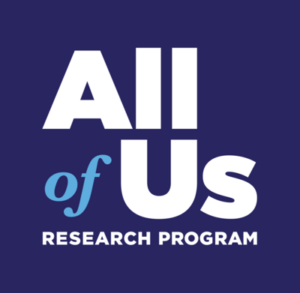
The NIH’s All of Us national population health program is increasing its rural presence.
Where you live affects how you feel. Because everything around you contributes to your health. That includes the food you eat, the places where you spend your days, and the air you breathe. Or how far you live from medical care.
That is a central idea of the All of Us Research Program. Enrolling people from different backgrounds and neighborhoods is the key to precision medicine.
People who live in rural areas have unique experiences to share. All of Us already has more than 70,000 participants who live in rural areas. That’s about 9% of our participants. But 20% of people in the United States live in rural areas. So we know we can do more.
The Heartland Consortium is a new group of All of Us enrollment partners in four Midwestern states. The group came together last year and is already enrolling people in All of Us.
To learn more about All of Us, click here.
CMS is Extending Medicaid Unwinding Data Reporting
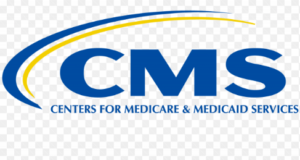 The Centers for Medicare & Medicaid Services (CMS) issued this letter to inform Medicaid agencies that CMS is extending current state reporting requirements for certain metrics contained in the Unwinding Data Report. Monthly state reporting about renewal actions occurring on or after July 1, 2024, and fair hearing requests that have been pending for more than 90 days, will continue on an ongoing basis. CMS will continue reporting data publicly to maintain transparency into Medicaid and CHIP renewal outcomes at the national and state levels. Medicaid is an important source of insurance coverage in rural areas. The unwinding of the continuous Medicaid coverage provision has resulted in over 22 million enrollees being disenrolled as of May 23, 2024 and over 49 million have had their coverage renewed.
The Centers for Medicare & Medicaid Services (CMS) issued this letter to inform Medicaid agencies that CMS is extending current state reporting requirements for certain metrics contained in the Unwinding Data Report. Monthly state reporting about renewal actions occurring on or after July 1, 2024, and fair hearing requests that have been pending for more than 90 days, will continue on an ongoing basis. CMS will continue reporting data publicly to maintain transparency into Medicaid and CHIP renewal outcomes at the national and state levels. Medicaid is an important source of insurance coverage in rural areas. The unwinding of the continuous Medicaid coverage provision has resulted in over 22 million enrollees being disenrolled as of May 23, 2024 and over 49 million have had their coverage renewed.
Pennsylvania Human Services Department’s Website Update in Process
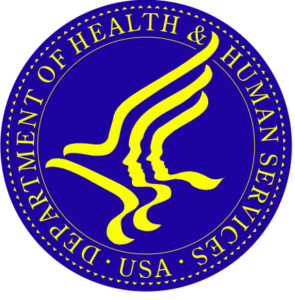 In partnership with the Governor’s Office and the Commonwealth’s web development vendor, the Department of Human Services (DHS) is moving to a new public-facing website platform. Deployment of the new platform began the evening of Tuesday, May 28. This transition will only affect dhs.pa.gov, and will not affect COMPASS, CWIS, PROMISe, PELICAN, or any other custom developed platforms. With a project of this size, DHS anticipates there could be some errors, potential disruptions, and growing pains. DHS is working closely with the Governor’s Office and the web development vendor and will be triaging and correcting issues as they are identified. If providers and partners experience any functional disruption, error, and/or are unable to access essential business content or services, please report them via the DHS Feedback Form under “Website Feedback” – the first option. Check your bookmarks for updates.
In partnership with the Governor’s Office and the Commonwealth’s web development vendor, the Department of Human Services (DHS) is moving to a new public-facing website platform. Deployment of the new platform began the evening of Tuesday, May 28. This transition will only affect dhs.pa.gov, and will not affect COMPASS, CWIS, PROMISe, PELICAN, or any other custom developed platforms. With a project of this size, DHS anticipates there could be some errors, potential disruptions, and growing pains. DHS is working closely with the Governor’s Office and the web development vendor and will be triaging and correcting issues as they are identified. If providers and partners experience any functional disruption, error, and/or are unable to access essential business content or services, please report them via the DHS Feedback Form under “Website Feedback” – the first option. Check your bookmarks for updates.
Analyzing the Latest Alcohol Death Data and Change Over the Last Decade

The health policy nonprofit, KFF, used data from CDC WONDER to examine trends in death caused by alcohol from 2012-2022. The report finds that deaths were highest among people aged 45 to 64, males, people living in rural areas, and American Indian/Alaska native people. Rural areas experienced faster growth in alcohol deaths, driven by sharp rises during the pandemic.
Understanding HRSA Modifications to the Definition of Rural for FORHP Grants
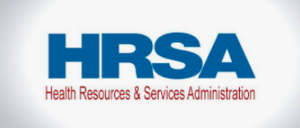 – Comment by May 28. On April 26th, the Federal Office of Rural Health Policy (FORHP) announced a proposed modification to the definition of ‘rural’ used to designate eligible areas for rural health grants. Because access to needed health care is likely to be reduced when roads are most difficult to traverse, FORHP proposes to modify the definition of rural areas by integrating the new Road Ruggedness Scale (RRS) released in 2023 by the Economic Research Service (ERS) of the U.S. Department of Agriculture. The proposed modifications are based on a data-driven methodology to identify areas with difficult mountainous terrain. All areas included in the current definition of rural would remain included.
– Comment by May 28. On April 26th, the Federal Office of Rural Health Policy (FORHP) announced a proposed modification to the definition of ‘rural’ used to designate eligible areas for rural health grants. Because access to needed health care is likely to be reduced when roads are most difficult to traverse, FORHP proposes to modify the definition of rural areas by integrating the new Road Ruggedness Scale (RRS) released in 2023 by the Economic Research Service (ERS) of the U.S. Department of Agriculture. The proposed modifications are based on a data-driven methodology to identify areas with difficult mountainous terrain. All areas included in the current definition of rural would remain included.
Reimagine Rural is Back For Season 2!
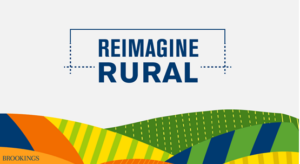
The Reimagine Rural podcast is back for a new season! Join Brookings Senior Fellow Tony Pipa for a journey into the heart of rural America, where changemakers are propelling their communities toward new opportunities and equitable prosperity.
Through illuminating conversations with local leaders, Pipa explores the transformative shifts, underlying challenges, and intricate nuances shaping rural development today. This season covers the revitalization of manufacturing, innovative approaches to housing, the expansion of broadband connectivity, and more.
🎧 Listen to episodes one and two, and follow the show on your preferred listening platform to stay updated on the latest episodes.
More about the work
Reimagine Rural is more than just a podcast; The Reimagining Rural Policy initiative at Brookings brings engaging narratives and in-depth analyses that provide a comprehensive view of the policies and trends shaping real-world rural development.
About Brookings
The Brookings Institution is a nonprofit organization based in Washington, D.C. Our mission is to conduct in-depth, nonpartisan research to improve policy and governance at local, national, and global levels.
Free COVID-19 Tests Available for Households
The Biden-Harris Administration and Administration for Strategic Preparedness and Response (ASPR) are committed to ensuring equitable access to COVID-19 tests. ASPR is refreshing ordering on covid.gov for every U.S. household to order additional tests at no charge. Households that ordered this fall can order four more tests, and those that have not ordered this fall can submit two orders for a total of eight tests. Additionally, ASPR will continue to provide over four million free COVID-19 tests per week directly to long-term care facilities, schools, community health centers, and food banks. More information on these efforts and a digital toolkit to share through your social media avenues is available at covid.gov.
Pennsylvania Medical School Celebrates Anniversary and Impact
The Lake Erie College of Osteopathic Medicine (LECOM) recently celebrated its 30th anniversary. LECOM is the largest medical school in the country where they train future doctors, pharmacists, dentists, and podiatrists. The college is the core of the nation’s only osteopathic academic health center, and LECOM maintains one of the lowest tuitions among medical schools in the country. According to the college, LECOM’s total impact on the Commonwealth of Pennsylvania in 2022 approached nearly $1.2 billion. Learn more.
